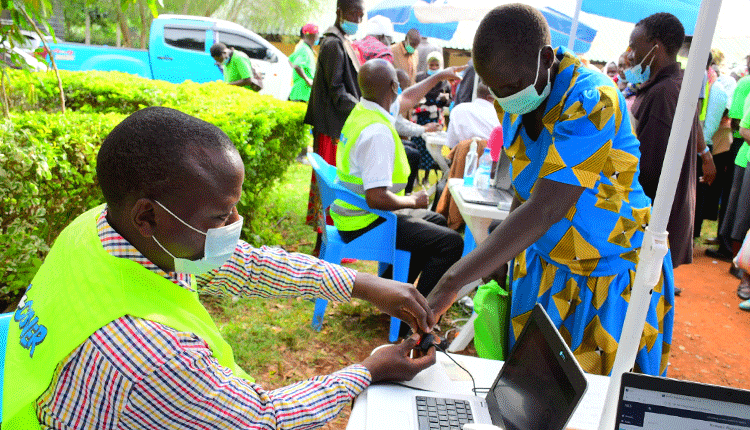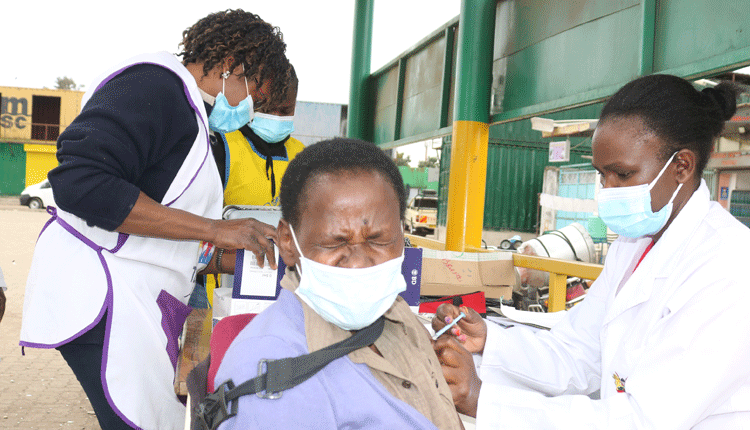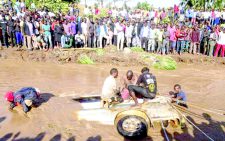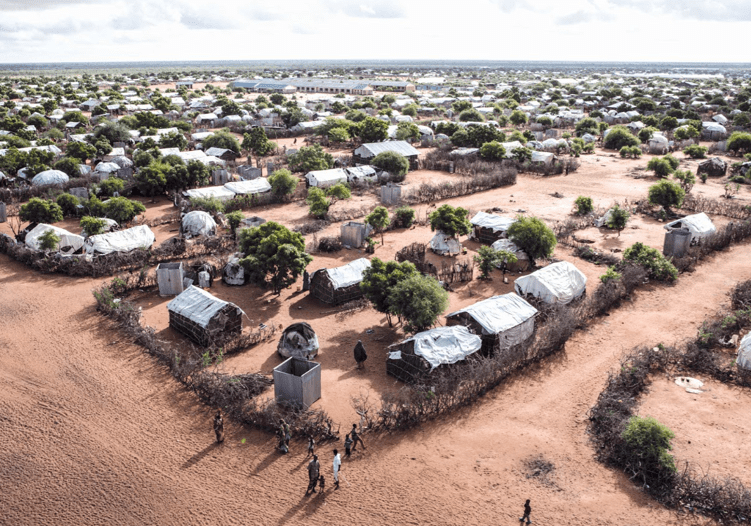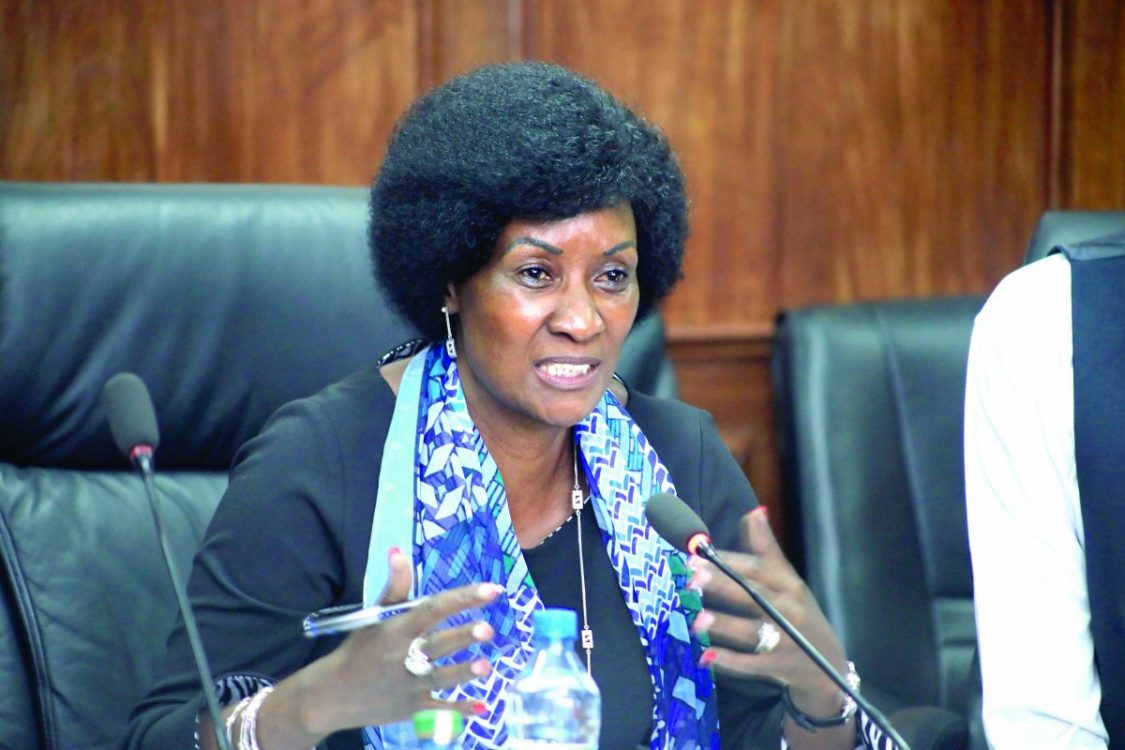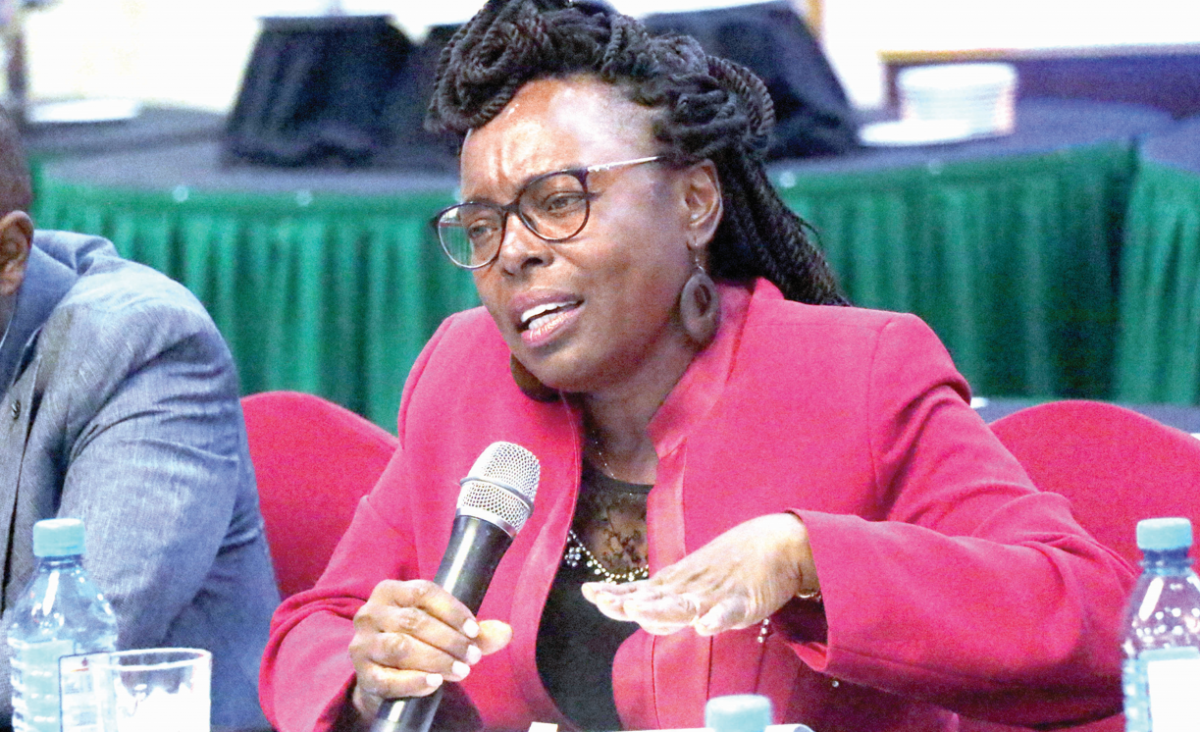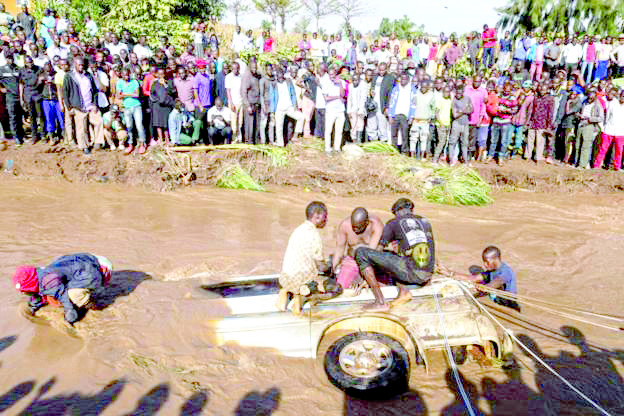Archaic culture, technology turn school girls into mums in Narok
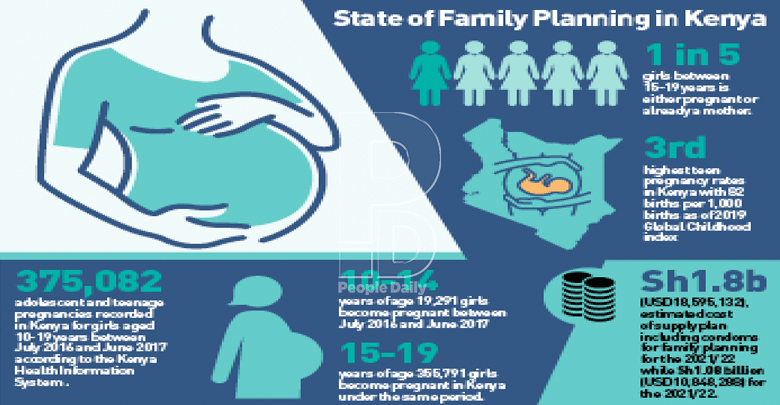
George Kebaso @Morarak
From inside the room – that doubles up as a kitchen— a baby’s cry tore through the mud wall.
At the sitting room of the three-roomed house, Agnes* and her daughter Peris* sit beside each other. Their faces are pitiful, and look troubled.
“Please go and bring the baby,” a village elder seated on the opposite side says in the local dialect. Peris*, a teenage mother, goes inside and reappears with her bundle of joy.
Naroosura village, a Maasai community settlement, near Maasai Mara Game Reserve, is teeming with teenage mothers.
Peris*, 16, a secondary school drop out got pregnant three months after Covid-19 outbreak last year now has a two-months-old baby.
She has not reported back to school and she may not even proceed with her studies because her parents cannot afford to pay school fees and hire a nanny.
Many girls, her agemates in the village are either pregnant or are teen mothers or have been married off.
“He used to come here to visit my brother but with time he started making advances on me.
We used to meet during weekends but the “meetings” increased after we closed school because of Covid-19 outbreak last year,” she said.
After several months, she says, she missed her monthly periods and knew she was pregnant.
“I tried to hide it from my mother, but one day, she asked me who was responsible for it.
When I told my boyfriend about it, he suggested that I terminate the pregnancy but I refused. He disappeared and I have never seen nor talked to him since then,” she added.
Right of passage
“I looked at my daughter and noticed something was wrong. When she told me that she was pregnant, I was shocked but I vowed she would continue with her studies despite the setback.
I am still looking for money to take her back to school,” she says. It has become difficult for mothers here to have a conversation with their daughters, she noted.
It also emerged that once the girls are secretly circumcised ( because the government has outlawed the practice), majority of them believe that they have matured and certified to engage in premarital sex.
“In our days, things were different. After undergoing the right of passage, we used to wait until we get married to engage in sex but nowadays, girls as young as 13 years, feel like they have become real women and can start their own families,” she added.
A spot check by the People Daily revealed that about 20 other girls in Naroosura village had similar tales.
A mixture of cultural practices and explosion of technology, especially use mobile phones and video shops have exposed the Maa community thought to be laid back.
Some girls in a rescue centre in the same village shared similar experiences. They are all below 17-years-old and have children. Young boys are responsible the mess they are in, they claim.
“My mother sent me to Maasai Mara to work as a house girl. She could not afford to pay my school fees.
While I was there, I bought a mobile phone. I contacted my boyfriend and we started chatting.
After several weeks, he relocated to where I was working and started seeing each other and after a short while I realised I was pregnant,” says Mercy, a Form 2 drop out. The boy vanished into thin air when he learnt I was pregnant.
“Going back to school for a Maasai girl is a miracle. When you become a mother, you are given away for marriage.
It was, therefore, surprising that I found myself back in school. I thought God had given me another chance.
I made a decision to abstain and focus on my studies,” she said. She said most of the girls in the community are not aware about modern family planning methods.
Antony Mulinge, a Public Health Officer at Naroosura Health Centre says the number of young women visiting the health facility for ante-natal clinics has been rising since 2018.
Medical records show 5,538 girls below age 18 attended pre-natal care in the government hospitals last year.
The actual number of pregnancies is higher. “But late last year and this year, that number has jumped to unprecedented levels due to Covid-19 pandemic, outdated beliefs and cultures and night crusades.
He proposes teachers and parents should teach girls and boys about family planning methods once they celebrate their 10th birthday.
He also suggests the government should come up with a policy to distribute condoms to even schools so that as many young men as possible can access them. Equally, girls should be sensitised on use of condoms.
“We have enough stocks of all types of family planning commodities, but most old men are not happy about this kind of education. Locally, they don’t appreciate use of condoms.
They claim, it will get lost inside and it will harm them,” an 18-year old man, who only identified himself as Peter says.
Mulinge says because of lack of resources, their mobile outreach programmes to hard-to-reach areas, have been hampered.
It is the same story in Makueni and Migori counties. In Makueni, Mbiu Wambua, the Medical Superintendent at Kibwezi sub-county hospital echoed similar sentiments.
“Despite availability of family planning drugs, we have halted our outreach programmes because we don’t have fuel to go to the villages to sensitise people about Ffamily planning and also distribute the drugs,” he added.
Abject poverty
In Migori county, Aluru Island requires a well planned multi-sectoral approach to deal with rising cases of unplanned pregnancies and other health challenges according to Chief Officer in charge of Public Health Pauline Amollo.
“Since it’s like a transit island, we need to deal with the issues around it and the mainland in a coordinated approach,” she adds.
In Narok, it emerged that young men are responsible for the rampant teenage pregnancies, but again the girls also decline sex advances simply because a boy will want to use condom.
Bishop Simon Simpai of Christian Church International Kenya (CCI) says although the area is productive, poverty is still high.
“This is why many girls work in the farms to supplement their parents income.
In the process, they are lured by rich men who come to buy the farm produce. Mothers have also abdicated their responsibilities,” he adds.
The digital revolution, he says has eroded culture and left most of the young people hooked to modernity.
This has worsened in the past year where most people have been at home. “In the past, children were respectful.
It’s not the case now. The emergence of smart phones and video shops has transformed our children completely.
His wife, Mary says poverty in the Naroosura village is partly to blame for the teenage pregnancies and the rising disintegration on the family.
She, however, says they have no option but to take the bull by the horns. “It is very hard for the church to promote family planning because it will appear like we are promoting prostitution, but now we have no option,” she noted. She says it has reached a point where a multi-faceted dialogue is a must.
Rahab Kenana, a Member of Narok County Assembly said the issue of teenage pregnancies is a major concern to leaders.
This saw the community leaders from Kajiado, Laikipia and Samburu converge in Narok recently to look for a way forward on the issue.
“During Covid, alongside prayers against the disease, teenage pregnancy became a key item. When schools were reopened early this year, we saw mothers instead of girls going to school,” she says.
However, she feels the issue will be handled better through the Narok Technical Teenage Pregnancy Task Force (NTTPTF) which comprises of legislators, Office of First Lady, Woman Rep among other stakeholders.
“In the Maasai community, a boy is supposed to be nurtured by the father, and girls should be counselled by their mothers.
However, in this age and time, it should not be that way,” she says. In January, for instance, more than 10,000 pupils in the county did not report back to school when the schools were reopened after nine months closure due to Covid-19.
In an interview, Narok County Commissioner Evans Achoki said stakeholders should ensure all children are in school as required by the law.
“It is crime to hold a child who should be in school at home. Parents should take advantage of the free primary education programme offered by the government to take their children to school,” says Achoki adding that he has spent a lot of time dealing with teenage pregnancy related issues since he came to the county last year.
Achoki attributes the high cases to circumcision. He noted that once a girl has undergone the outlawed practice, she feels woman enough to engage in premarital sex.
“We have had meetings with chiefs to ensure we eradicate FGM that is heavily contributing to the menace.
Now we want to go to the next level to know who impregnated the girls,” he said.

